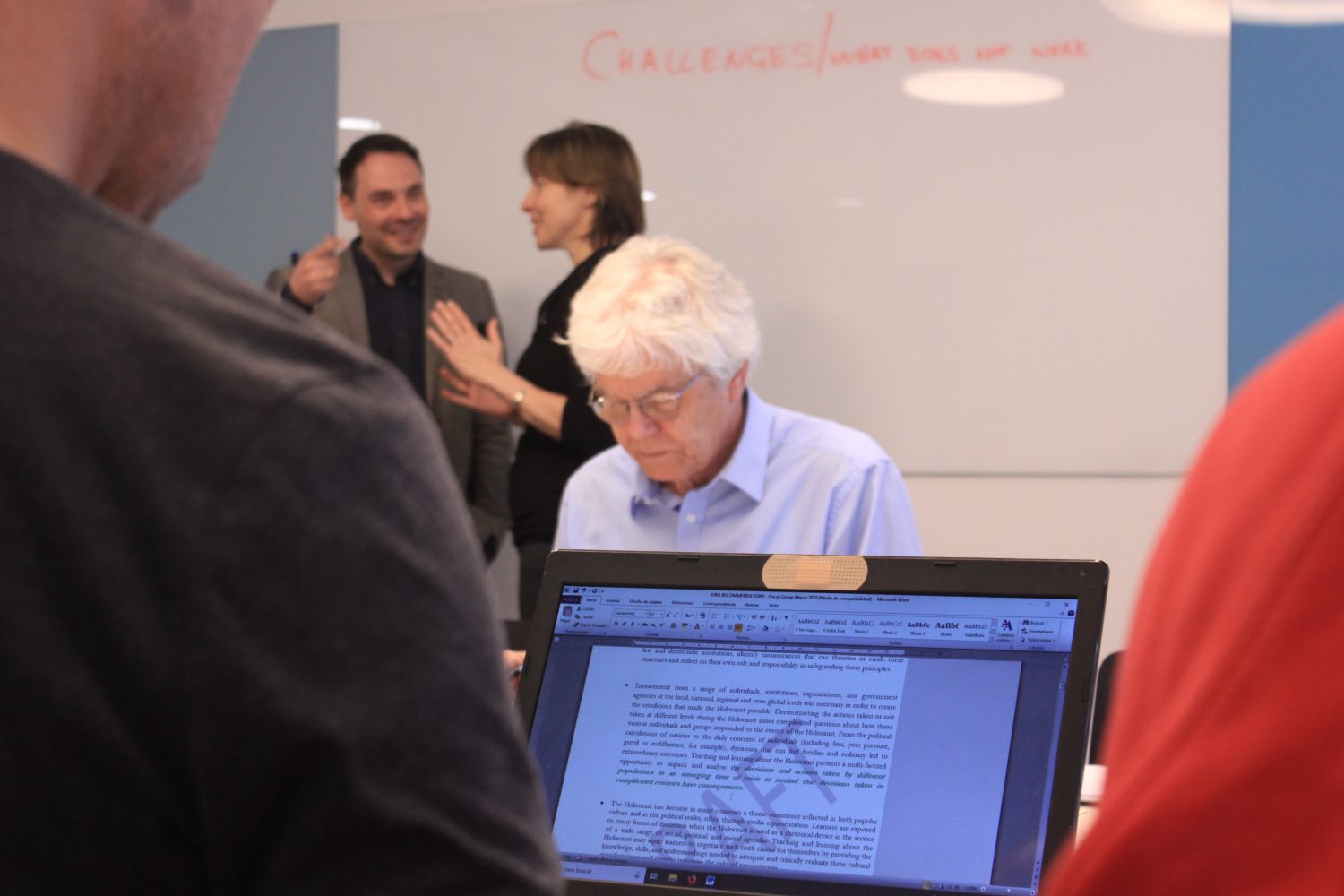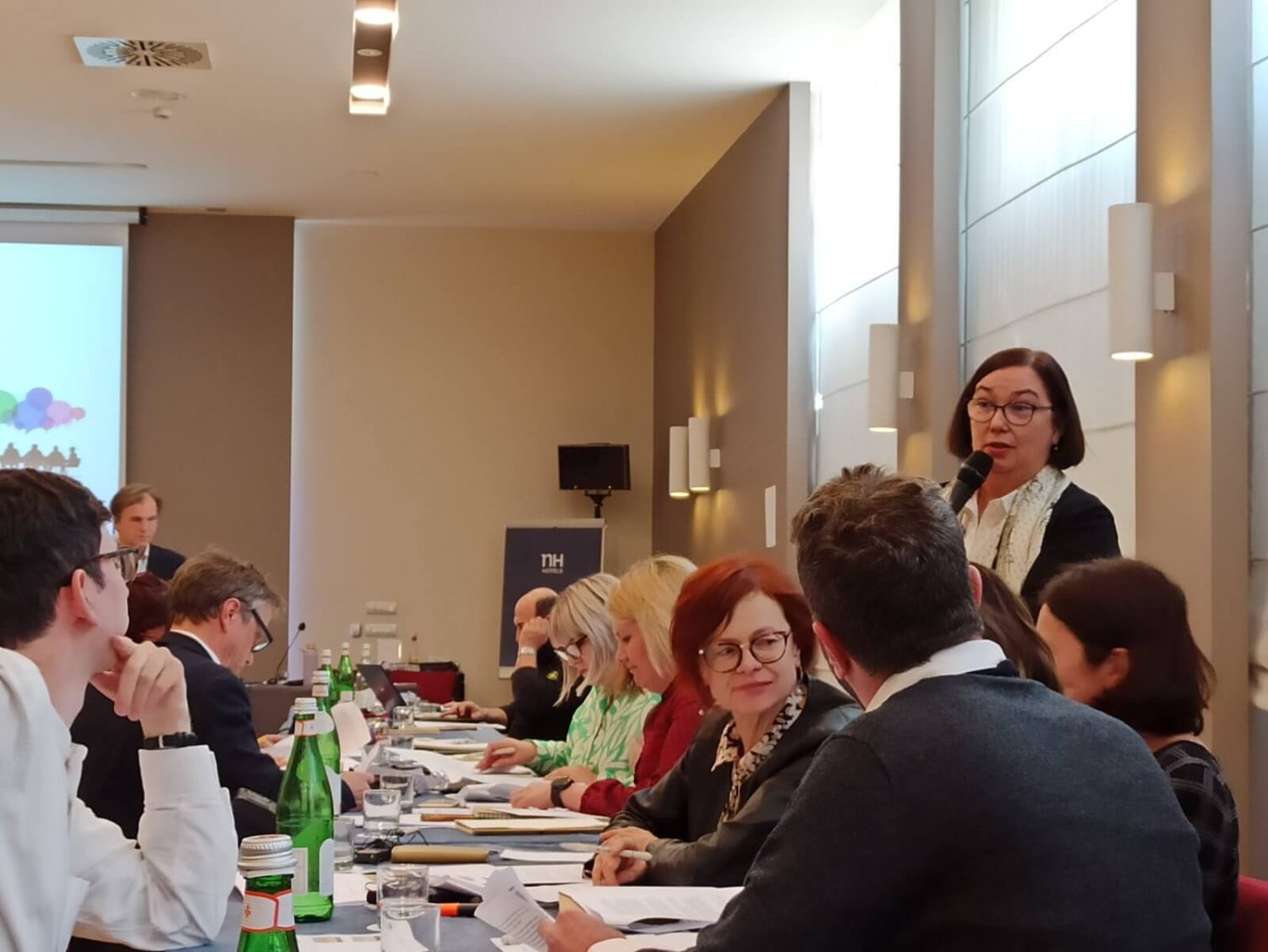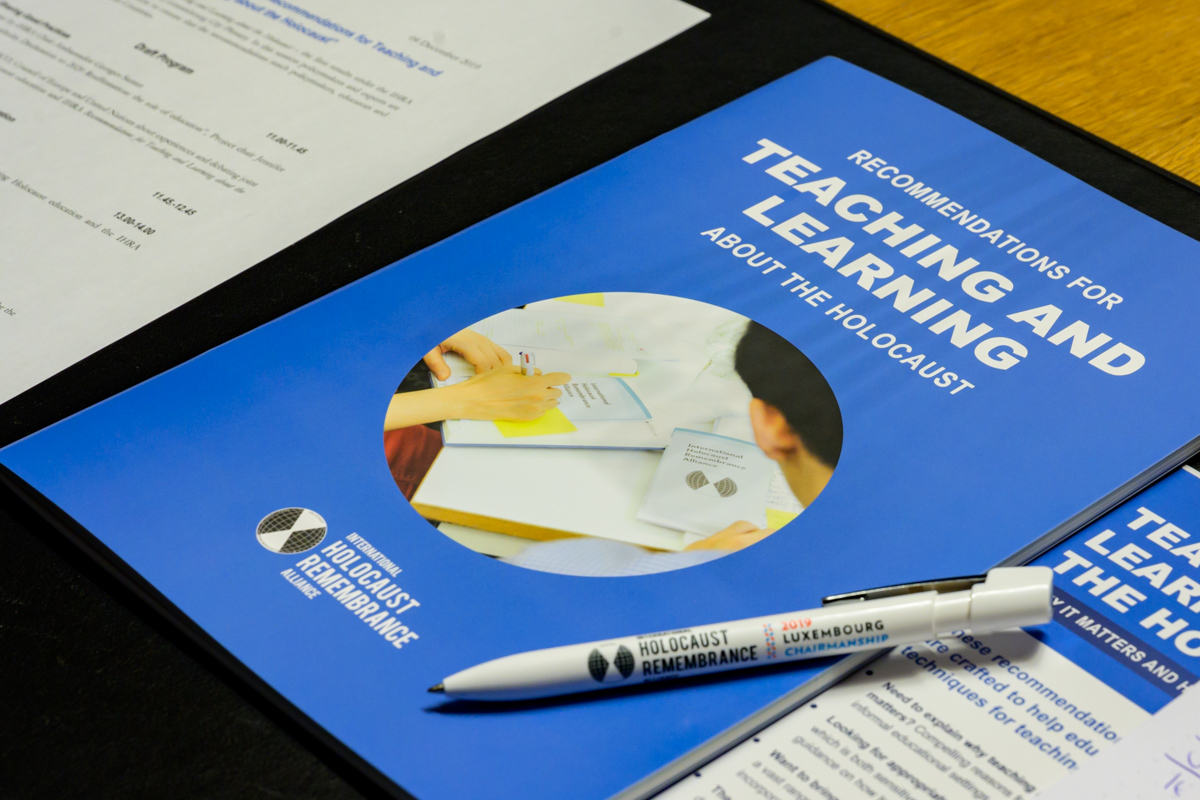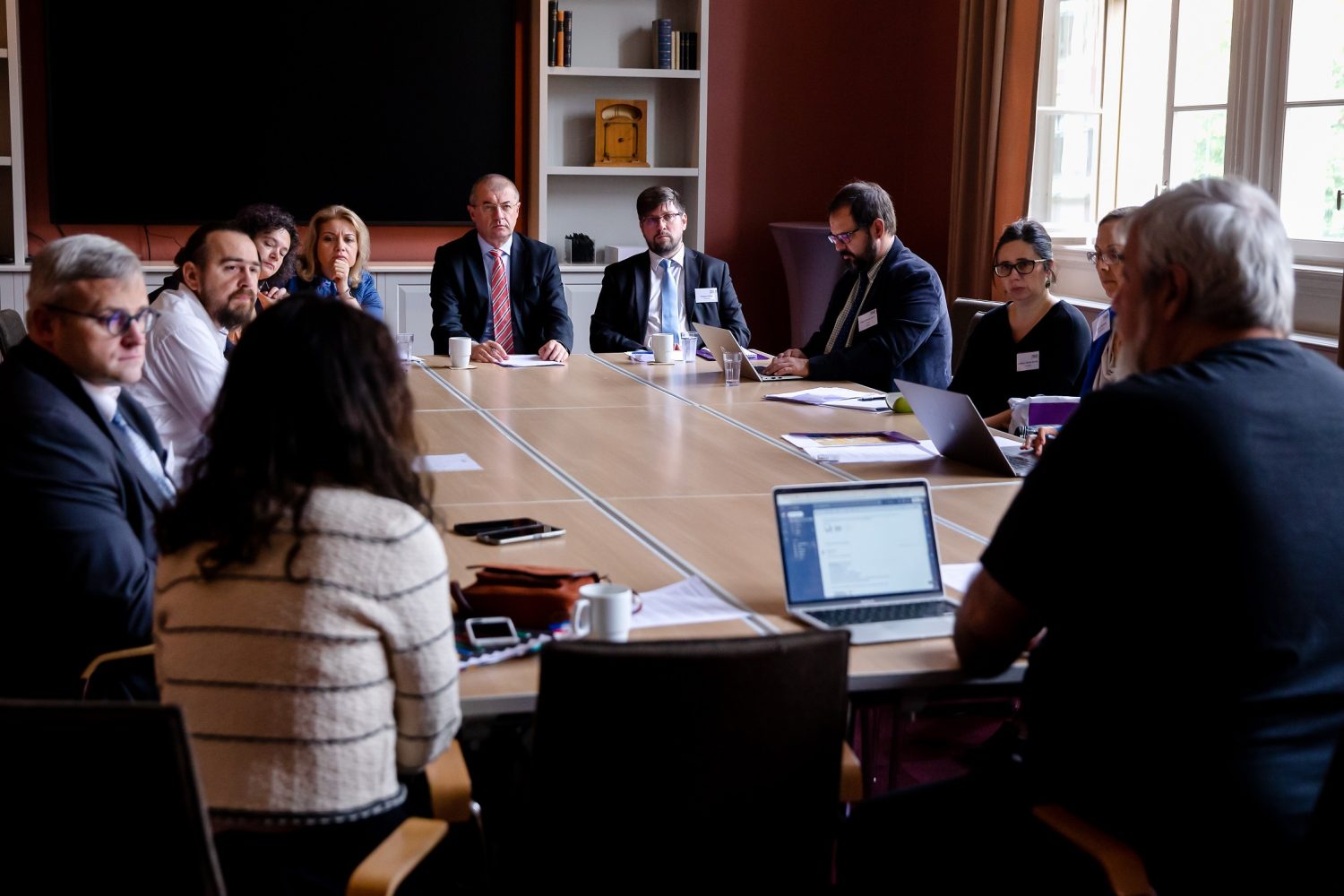


IHRA Project: Recommendations on Teaching and Learning about the Holocaust
One essential tool created and promoted by the IHRA’s network of experts is a set of guidelines for educators and educational policymakers to consider when developing effective curricula and educational materials about the Holocaust. The IHRA is in the process of refreshing these guidelines, in particular the “Why,” “What,” and “How,” in order to incorporate recent research and knowledge about teaching and learning about the Holocaust.
This project began in September 2018 and will continue through January 2020. The aim of the project is to safeguard the historical record by promoting the use of fact-based, educationally sound approaches for teaching and learning about the Holocaust in both formal and informal settings. These can then serve to challenge denial, distortion, and obfuscation of the historical record.
“The field of teaching and learning about the Holocaust has evolved over the past two decades. The world is always, of course, changing as well. We want to ensure the recommendations remain relevant for educators who must navigate current challenges and seize new opportunities,” noted project co-lead Jennifer Ciardelli (EWG delegate).
Expertise from educators
On the 25 and 26 March, the IHRA hosted a workshop for the project. Participating in the workshop will be eight educators, representing eight different countries: Austria, Croatia, France, Germany, Lithuania, Poland, Spain, and Sweden. In an effort to seek feedback beyond the IHRA delegates, these educators provided input and ideas based on their experiences working in schools, as teachers trainers, and at museum memorials. The focus group will lend insight from their own professional lens to help answer: how can the IHRA make these guidelines as user-friendly and relevant as possible?
About IHRA and the project
The IHRA unites governments and experts to strengthen, advance and promote Holocaust education, remembrance and research worldwide, and to uphold the commitments of the 2000 Stockholm Declaration.
Members of the project core team are: Jennifer Ciardelli (USA), Niels Weitkamp (Netherlands), Andrea Szonyi (Hungary), Benjamin Geisert (Norway), Wolf Kaiser (Germany), Paula Cowan (UK), Lena Casiez (France), and Yessica San Roman (Spain).




